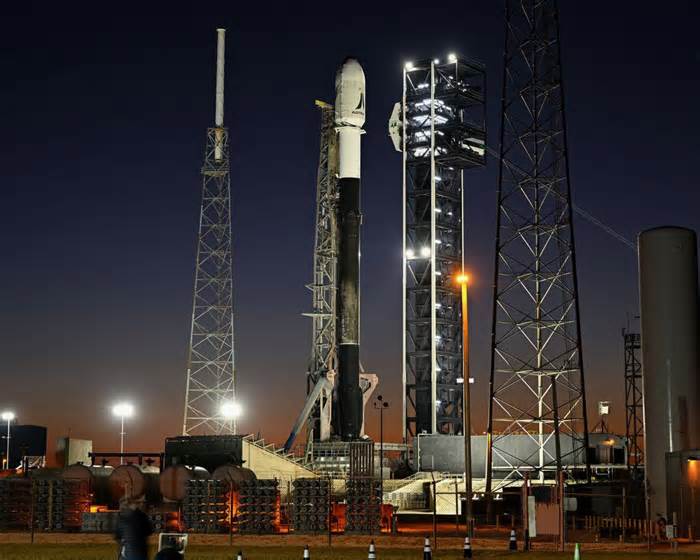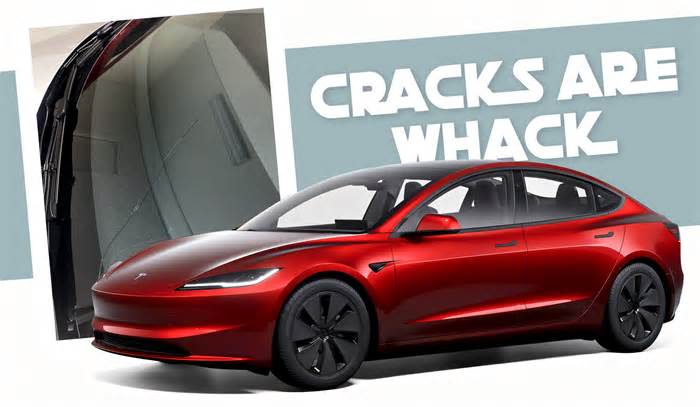
Matthew Yglesias: Not even Musk could discipline Trump’s spending
- by TwinCities.com
- Sep 12, 2024
- 0 Comments
- 0 Likes Flag 0 Of 5

September 12, 2024 at 12:05 a.m.
Donald Trump favors enormous tax cuts while also swearing to protect Social Security and Medicare benefits and promising steep cuts in immigration, which will make retirement programs harder to sustain. This does not work, mathematically, especially in an economy already dealing with inflationary and interest-rate pressure.
Enter Elon Musk. Trump’s latest economic pitch is to say he’ll find the money he needs with a government efficiency commission helmed by Musk, which will wring waste out of the system and deliver the country to budget Nirvana.
It’s a clever gambit, politically. But I have news for Trump and Musk: The federal government is already quite efficient at its main job, which is sending money to old people.
Love or hate Musk, he’s clearly a hard worker whose obsessive product focus has brought success to both Tesla and Space X. His takeover of Twitter has been much less successful from a business standpoint, but he did manage to make huge layoffs in a way that produced much wailing on the left (which Trump undoubtedly sees as a bonus) but ultimately worked out fine (which he probably cares less about). It’s tempting to say that Musk could accomplish the same thing with the federal government — rummage through the books, fire some bureaucrats and offend the right people. The notion of balancing the budget through a crackdown on waste was a staple of 1990s pop culture, in such films as “Dave” and books as “Executive Orders.”
It’s enough to make you wonder why real-world presidents George H.W. Bush and Bill Clinton signed deficit-reducing bills comprised of unpopular tax increases and spending cuts. Did they just not know the right accountants?
More likely, this idea keeps coming back not because it’s feasible but because it’s politically expedient.
The No. 1 item on the government’s budget, after all, is Social Security, which is administered with breathtaking efficiency. The next big items are interest on existing debt — not a great use of funds, but also not an efficiency question — and the military, where Trump wants to spend more rather than less.
The other two big domestic items are Medicare and Medicaid. Can they be made to be more efficient? To an extent, of course, it depends what you mean. But the administrative overhead of these programs is very low compared to private insurance, which is in some ways a double-edged sword. Medicare also takes advantage of its large size to insist on paying less to doctors and hospitals than they get from the private sector, which is a pretty efficient strategy. Medicaid pays even lower rates — and as a result many providers refuse to accept it.
The upshot is that there is almost no featherbedding in these programs. The one big opportunity to squeeze costs without reducing services is one President Joe Biden has already partially seized: taking advantage of Medicare’s bulk purchasing power to force the makers of 10 popular prescription drugs to offer lower prices. This initiative could be expanded in a way that would save a bunch more money without meaningfully reducing patients’ access to medication. Conservatives tend to oppose this idea, however, arguing that windfall profits from drugs that hit big are necessary to preserve incentives to invest in R&D efforts.
Without wading into that debate, I would merely observe that “government waste” is often in the eye of the beholder.
A private company such as Tesla or X has a profit-and-loss statement; a given line item is either contributing to revenue or it isn’t. It might be hard to predict whether a given expenditure is or is not a good idea, all things considered, but the terms of the discussion are for the most part straightforward. Such is not the case with, say, Medicare, which is much less likely to deny a claim than private insurance. This is precisely what so many elderly people like about Medicare. Various proposals exist to apply more stringent cost-benefit analysis to Medicare coverage, but doing so would entail creating more bureaucracy rather than less. It’s also what spurred the “death panels” controversy of the Obama years.
Related Articles
Please first to comment
Related Post
Stay Connected
Tweets by elonmuskTo get the latest tweets please make sure you are logged in on X on this browser.
Sponsored
Popular Post
tesla Model 3 Owner Nearly Stung With $1,700 Bill For Windshield Crack After Delivery
33 ViewsDec 28 ,2024
Middle-Aged Dentist Bought a Tesla Cybertruck, Now He Gets All the Attention He Wanted
32 ViewsNov 23 ,2024






 Energy
Energy


















